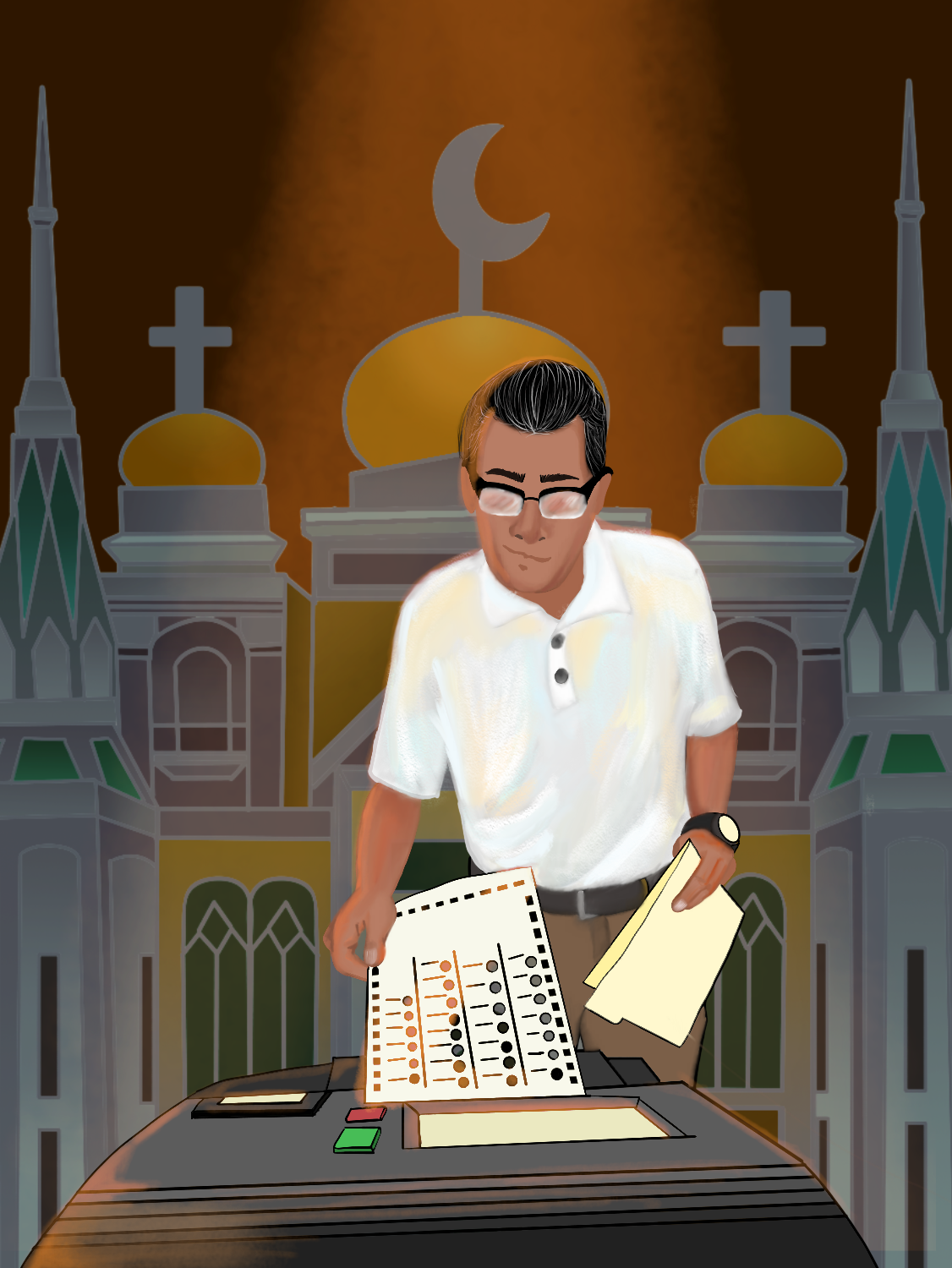
THE GROWING influence of secularization poses a threat to the authority of churches worldwide as some groups question traditional values inspired by religious ideals while calling for freedom of choice.
However, in a deeply religious country like the Philippines – which has a constitution that guarantees the separation of church and state – faith is seen to play a crucial role in practically every aspect of the lives of its citizens, including choosing their next leaders.
In the case of Filipinos, religion and politics are not separated, according to Asst. Prof. Ma. Zenia Rodriguez of the University of Santo Tomas (UST) political science department.
“It is safe to say yes it may. Religion continues to play a role in influencing the faithful, and this may extend as to whom they will vote for,” Rodriguez told The Flame.
She added that the faith of Filipinos affects their voting behavior since they are very dedicated and steadfast in practicing their religion.
Fr. Dexter Austria of UST’s Faculty of Sacred Theology echoed the view, noting that some people genuinely believe in the Bible and that “unity in the church is God’s teaching.”
Austria added that no free will is suppressed when a voter follows his church’s endorsement since his freedom to choose a leader lies in his decision to be with that group.
Influential
More than 80 percent of Filipinos identify as Roman Catholic. The country is also home to Protestant groups and other Christian sects like the Iglesia ni Cristo (INC), and Islam.
While most of them do not participate directly in political activities, religious leaders greatly influence them. Some of them even endorse candidates whom they think will push for policies that affirm their teachings.
Some leaders use moral suasion in convincing their members to support a candidate while others go as far as organizing a block voting system, a mechanism that politicians hope would work in their favor. Therefore, it is not unusual to see candidates meeting with religious leaders during the campaign period as social engagements are widely seen as venues for political concessions.
For instance, in 2016, all presidential candidates met with INC leaders, whose members are known to practice block voting.
For Chloe (not her real name), an INC member, the participation in bloc voting has a biblical basis as it has been practiced for a long time.
She noticed some people indirectly criticizing their religious practices, noting that the public often misinterprets several of their teachers.
“I respect that everyone has the right to express their opinions and give criticisms as long as they are not destructive,” Chloe told The Flame.
The Catholic Church does not endorse candidates but some of its bishops and priests do so in their individual capacities. Politicians, however, still exert efforts to be in the good graces of local parishes and lay groups, many of whom are actively involved in voter education programs.
A notable exception would be President Rodrigo Duterte who openly attacked Catholic bishops for their critical stance on his bloody war on drugs, a campaign that has left more than 6,000 suspects dead.
Duterte, who claims to believe in God but not in organized religion, had described the Catholic Church as “full of s***” and labeled it as the “most hypocritical institution.”
Politicians are also seen participating in religious activities. In 2019, Samira Gutoc, a Muslim woman who ran for senator under the opposition coalition, walked into church aisles for interfaith dialogues.
“Politicians of course know that such campaign strategy will probably make them endearing to voters,” Rodriguez said, implying that some people vote not only based on their beliefs but also on their religious leaders’ preferences.
Austria linked the politicians’ desire to associate themselves with religious leaders to the Filipinos’ tendency to vote for people they can relate to.
“This is why politicians try to appeal to the poor even if they are wealthy because they are aware that most of the voters in the country are underprivileged,” said Austria.
Playing God
While he thinks that faith will still be a factor in the upcoming election, Austria said voters should look at the “innermost core of their conscience” of the candidates.
“[Politicians] are under God, [but] sometimes they want to play God,” Austria said.
Future leaders should be God-fearing, respectful of human life, goal-driven, honest, and ready to walk the talk.
“Sometimes, our politicians are flaunting all their successes and achievements but after which, nganga na (nothing happens),” Austria added.
Rodriguez said voters should not be swayed with “shallow gimmicks” such as publicity stunts and motherhood statements.
“A person with a good heart may be a good choice, but more than that, we need a leader who has concrete and feasible plans,” she said. F — M.L. Beech



